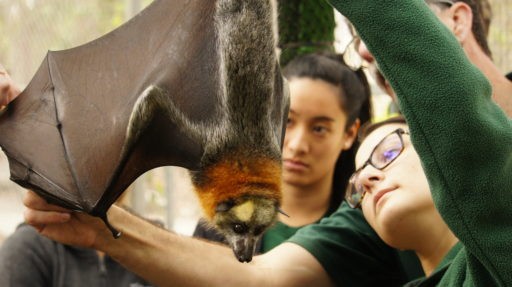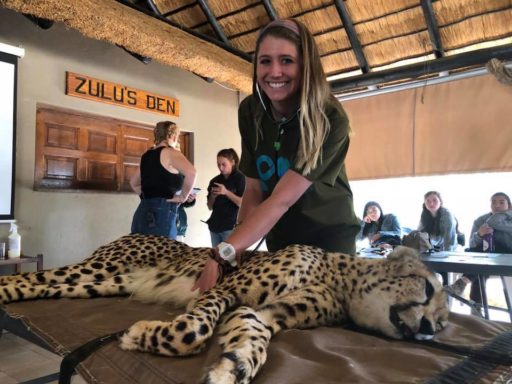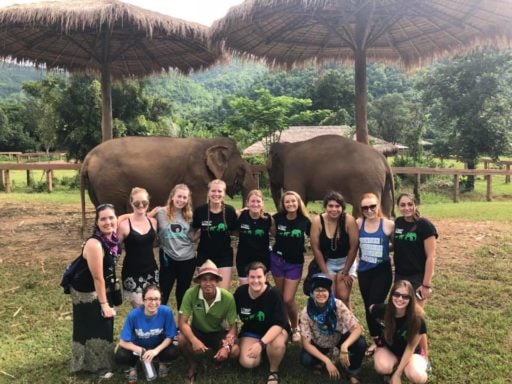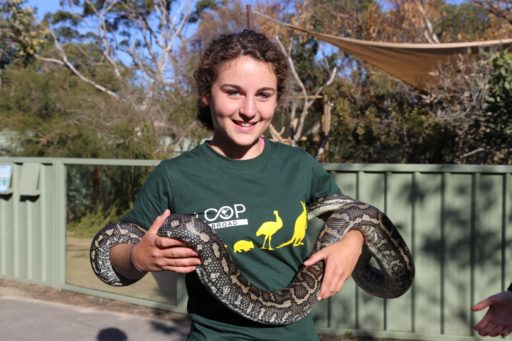 alt=”Upclose with a dog at the shelter”>
alt=”Upclose with a dog at the shelter”>Comparing vet volunteer programs can be hard work! To find the right veterinary volunteer program for you, you’ll need to do the research and compare your options. But what questions should you ask? What should you look for? How do you know what the experience will really be like? Here are some tips to get you started.

Veterinary volunteer programs can vary greatly, from internship-based experiences to husbandry work to volunteering at vet clinic. The program that is perfect for your best friend may not be a great fit for you. In other words, there’s no one perfect program – it’s about finding what’s perfect for you!
When you’re searching for vet volunteer programs, you might want to start by making a list of your goals. Is your primary goal to earn veterinary hours for your vet school application? Is it to be around a certain animal and learn more about it? Is it to travel to a certain country or region? Get college credit? Make a positive impact? Once you decide what your goals are, it will be easier to evaluate vet volunteer programs based on the criteria that really matter most to you.
Where can you even go to find options for vet volunteer programs? If you don’t want to travel, the easiest place to start is by looking at schools or vet clinics in and around your hometown to see if there are any veterinary volunteer programs available.
If you’re willing (or wanting!) to travel for your program, you can start by talking to your study abroad office at your school about suggested options, search online, or use a program search such as GoAbroad or GoOverseas.
Once you’ve found a program that interests you, you can start by quickly checking out online reviews to hear from past participants. But don’t stop there! Any program should be able to put you in touch with alumni from past years so that you can ask questions, see photos, and talk with them directly.
Talk to a couple alumni and try to get a feel for the experience to see if it’s what you expected and aligns with your goals. Every student has a different experience, of course, but this is a great place to start. If your parents have questions, the organization should be able to put them in touch with parents of past participants as well, which can be very reassuring!

Don’t stop at talking to alums – talk to the program staff too! When you call to ask questions, try to talk to someone involved in the program instead of just a sales representative. Ask whatever matters to you – don’t be embarrassed! Maybe you want to know if your phone plan will work there or if the wifi is dependable. Maybe you’re really nervous about the food. Maybe you are having trouble understanding the costs and want to go over them in detail. Whatever it is, don’t be shy about asking!
Doing your research and asking questions is the best way to sort through vet volunteer programs to ensure that you have a good experience. If you understand the program you are choosing and are prepared for what to expect, you can be more sure that it will be a good fit for you and a great experience for everyone involved.
Here’s a tip: Even if a program is described as a “veterinary” program, that is not a guarantee that you will be working with an actual veterinarian. Be sure to ask! On Loop Abroad programs, each veterinary program group is led by its own veterinarian whose main job is to teach his or her students and guide their experience.
It’s great to see the highlights listed on a website, but what does a regular day look like. Be sure to ask! If any of the languages is unclear, ask again! For example, does “volunteering with cats” mean cleaning cages, or giving medical exams, or assisting a vet? Knowing the answer to these questions can help give you a feel for what the veterinary volunteer programs you’re interested in are really like.
When volunteering at the vet clinic, there is bound to be downtime, but you can still get an idea of what kind of activities are regularly available.

Take a look at the sanctuaries, clinics, or animal facilities where the program takes place and make sure it’s something you feel proud to support with your time, money, and effort! Other institutional partners such as colleges or universities can be a good sign that an organization is trustworthy, but taking a look at the actual organizations you’ll visit will help give you a good idea of what to expect.

For most pre-vet and vet students, the animal and vet parts of the program are much more important in their choice, but that doesn’t mean the fun stuff shouldn’t matter! It can help to enrich your experience and make it once-in-a-lifetime awesome, and it will also set the tone for your trip and your group.

Studying veterinary medicine is a long road, and you will always benefit from looking forward and planning ahead. If you choose a program that is respected by vets, colleges, and vet schools, you will be contributing to your future in a positive manner, and that’s always a good thing!